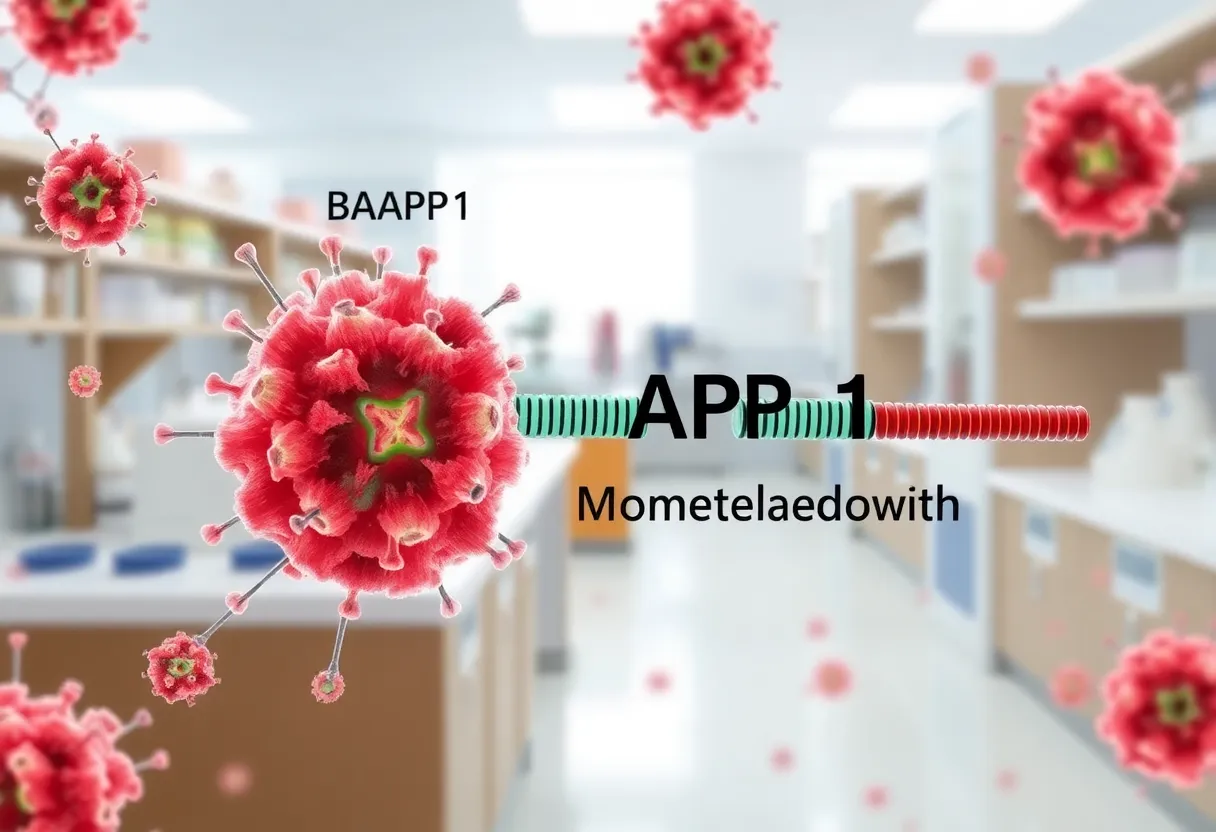News Summary
Significant Findings Unraveled in the Battle Against Mesothelioma
The world of cancer research has recently made some groundbreaking discoveries concerning malignant mesothelioma (MM), a type of cancer that affects the mesothelium, primarily linked to asbestos exposure. As the fight against this disease continues, studies reveal that nearly 20% of all human mesotheliomas may arise from inherited mutations in crucial cancer-related genes, with the BAP1 gene taking center stage. This new insight opens a vital dialogue about the underlying causes of MM and the role genetics plays in its development.
Genetic Insights Transforming MM Understanding
The complexity surrounding these rare mutations has posed challenges for researchers striving to connect the dots between genetic factors and environmental exposures. A significant gap exists between the functional implications of genetic findings and the epidemiological data available, highlighting the need for innovative studies. In pursuit of this knowledge, scientists have developed mouse models that closely mimic human MM pathogenesis, creating a unique opportunity to study the effects of genetic mutations divorced from asbestos exposure.
While most previous studies focused on the impacts of asbestos, little attention has been paid to genetic predispositions. Recognizing this oversight, researchers created a historical control dataset (HCD) that compiles instances of spontaneous mesotheliomas documented in unexposed wildtype mice. The implementation of Bayesian analyses in this study has produced compelling results, showcasing that BAP1 mutant mice exhibit a significantly higher rate of spontaneous MM compared to their wildtype counterparts. This groundbreaking finding supports the theory that pathogenic germline mutations can indeed lead to mesotheliomas independently of any external carcinogenic exposures.
Mesothelioma Incidence in the U.S.: A Glimpse at the Numbers
From 2017 to 2021, the state of mesothelioma in the United States paints a concerning picture, with 14,673 new cases reported alongside 11,747 deaths attributed to the disease. While there has been a decline in overall incidences, likely correlated with decreased asbestos exposure, certain mesothelioma cases have remained stable over the years. This persistence emphasizes the significance of understanding both environmental and genetic contributions to this cancer.
BAP1 Mutations: Genetic Predisposition’s Role in Disease Development
The research has identified the BAP1 Tumor Predisposition Syndrome as a vital area of focus concerning mesothelioma risk. Mouse models engineered to encompass specific BAP1 mutations have been crucial in advancing our comprehension of MM. Previous studies have indicated the urgent necessity for concentrated investigations into spontaneous MM rates devoid of established risk factors. Through comprehensive literature searches, researchers aimed to clarify these rates within various genetic models.
In-depth statistical analyses consistently reveal a strong association between BAP1 mutations and elevated spontaneous mesothelioma rates among mouse models. These findings reinforce the concept that mesothelioma can develop in individuals with pathogenic mutations, independent of known external carcinogenic exposures. The integration of historical control data significantly boosts the statistical power and broadens the analysis of MM incidence across different genetic backgrounds.
Paving the Way for Personalized Medical Interventions
The implications of this research provide a path toward a deeper understanding of genetic predispositions in mesothelioma, supporting the ultimate goal of developing personalized medical interventions. Recognizing the genetic factors involved in this disease could revolutionize diagnostic strategies and therapeutic approaches, fostering hope for those battling this devastating cancer.
As these studies continue to unfold, the message is clear: understanding the intricate relationships between genetic predisposition and environmental exposure is essential in the quest to eradicate mesothelioma. The merging of genetic insights with epidemiological data marks a promising frontier in cancer research that could reshape patient outcomes for years to come.
Deeper Dive: News & Info About This Topic
HERE Resources
Novocure to Showcase Innovations in Oncology at 43rd Annual J.P. Morgan Healthcare Conference
Asbestos Companies Using Legal Maneuvers to Escape Accountability
Warning Signs from the Classroom: The Alarming Asbestos Crisis in UK Schools
New FDA Proposal Targets Asbestos Testing in Talc Cosmetics
Virginia Jury Orders Norfolk Southern to Pay $5 Million for Asbestos Death
Family Awarded $8.8 Million After Asbestos Exposure Case
Asbestos Victims Raise Awareness Amid New Legal Precedents
Florida Firefighters At Risk: Alarm Bell for Mesothelioma and Lung Cancer!
Alabama’s Sordid Asbestos Legacy: A Call to Action for Victims and Families
Surge in Mesothelioma Deaths: A Deep South Crisis Uncovered
Additional Resources
- Nature: Groundbreaking Findings in Mesothelioma Research
- Wikipedia: Mesothelioma
- Nature: Genetic Insights into Malignant Mesothelioma
- Google Search: Mesothelioma Cancer Research
- Nature: BAP1 Mutations and Mesothelioma Risk
- Google Scholar: Malignant Mesothelioma
- National Cancer Institute: Mesothelioma
- Encyclopedia Britannica: Mesothelioma
- Google News: Mesothelioma Research



















